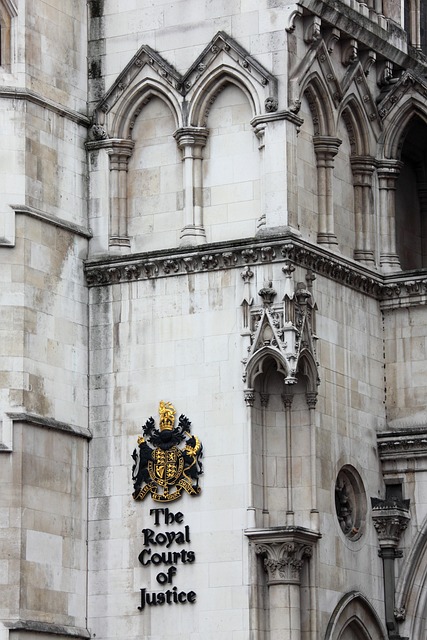Wealth transfer is a multifaceted process that requires careful legal and financial planning to honor an individual's last wishes, minimize tax liabilities, and prevent conflict among beneficiaries. This involves selecting appropriate wealth transfer vehicles like trusts, which offer benefits such as asset protection, estate tax minimization, and conditional distributions based on specific conditions or milestones. Judges and attorneys play a pivotal role in ensuring legal directives are followed, while personalized strategies are tailored to each family's unique situation. These bespoke solutions involve expert legal counsel and advanced financial instruments to streamline the process, ensure compliance, and protect beneficiaries' interests. Navigating this process also requires staying informed on current legislation and emerging trends, as well as collaborative efforts with financial planners and tax advisors for comprehensive planning. The courtroom can be a critical arena where wills and trusts are contested, making the proactive involvement of legal experts essential to safeguard against disputes, maintain estate integrity, and defend against litigation. Engaging in transparent communication with beneficiaries, designating reliable executors or trustees, and incorporating digital asset management are key steps to ensure a smooth transition of assets and preserve your legacy effectively.
navigating wealth transfer, personalized solutions, legal expertise, tax minimization, courtroom disputes, comprehensive planning, estate strategy.
As wealth transfer becomes an increasingly prevalent topic among individuals and families, the importance of tailored, strategic approaches cannot be overstated. This article delves into the nuanced realm of personalized wealth transfer solutions, guiding readers through the complexities with a focus on minimizing taxes and steering clear of contentious courtroom disputes. By leveraging expert legal insights and implementing meticulous planning strategies, one can ensure their assets are transferred efficiently and in accordance with their wishes. Join us as we explore the critical steps necessary for a smooth wealth transfer process, ensuring your legacy is preserved as intended.
- Navigating the Complexities of Wealth Transfer: A Primer on Personalized Solutions
- The Role of Legal Expertise in Crafting Effective Wealth Transfer Strategies
- Tailored Approaches to Minimize Taxes and Avoid Courtroom Disputes in Wealth Transfers
- Implementing a Comprehensive Plan: Key Steps for Smooth Wealth Transfer Processes
Navigating the Complexities of Wealth Transfer: A Primer on Personalized Solutions

Navigating the intricate landscape of wealth transfer can be a daunting task for individuals and families alike. The process often involves complex legal structures, tax implications, and estate planning considerations that require careful attention to detail. In the courtroom, as guardians of an individual’s final wishes, judges and attorneys must ensure that the transfer of assets adheres to the letter of the law, which is where personalized wealth transfer solutions become pivotal. These solutions are tailored to align with the specific circumstances and objectives of the family or individual involved, taking into account their unique financial situation, legacy goals, and tax planning strategies. By leveraging expert legal advice and sophisticated financial tools, these personalized approaches can streamline the process, minimize potential pitfalls, and facilitate a smoother transition of wealth, ensuring that the intended beneficiaries receive what has been entrusted to them.
The choice of a wealth transfer vehicle is critical; it should be informed by a thorough understanding of one’s financial landscape and the potential impact of taxes and other legal considerations. Trusts, for instance, can be designed to provide specific benefits, such as avoiding probate, protecting assets from creditors, and minimizing estate taxes. Trusts also allow for conditional distributions, which can be structured to coincide with beneficiaries reaching certain milestones or ages, thus encouraging responsible financial management. In the context of a trust, the settlor can exert a significant degree of influence over how assets are distributed, even beyond their lifetime, making it a versatile and effective tool in personalized wealth transfer strategies.
The Role of Legal Expertise in Crafting Effective Wealth Transfer Strategies

Navigating the complexities of wealth transfer requires a multifaceted approach, where legal expertise plays a pivotal role. Legal professionals, with their deep understanding of estate laws and tax regulations, are instrumental in designing strategies that not only comply with legal stipulations but also optimize the transfer of assets across generations. Their guidance ensures that clients’ wishes are honored while mitigating potential risks that could arise in a courtroom setting, where contests over wills and trusts can be contentious. By staying abreast of current laws and anticipating future legal trends, these experts safeguard the integrity and intentionality of the wealth transfer process.
In the realm of personalized wealth transfer solutions, legal expertise is not merely about drafting documents; it encompasses a proactive approach to potential challenges. Attorneys who specialize in this field often work closely with financial planners and tax advisors to create comprehensive plans that address both immediate and long-term goals. This collaborative effort ensures that all aspects of the wealth transfer are considered, from minimizing estate taxes to protecting against creditors and litigation. The role of legal expertise is to ensure that the transfer of wealth is executed seamlessly, preserving the asset’s value and intent through the intricacies of the courtroom and beyond.
Tailored Approaches to Minimize Taxes and Avoid Courtroom Disputes in Wealth Transfers

Navigating the complexities of wealth transfer requires a nuanced approach that addresses both tax implications and the potential for family disputes. A tailored wealth transfer strategy can effectively minimize taxes by leveraging various trust structures, such as irrevocable trusts, which can remove assets from an individual’s estate, thus reducing the taxable value. These arrangements are designed to align with specific state and federal tax laws, ensuring compliance while maximizing financial efficiency. Additionally, by involving all relevant parties in the planning process, including legal and financial advisors, individuals can foster open communication and mitigate the risks of courtroom disputes. This collaborative approach not only respects each stakeholder’s interests but also sets clear expectations for how assets will be managed and distributed upon transfer.
In contrast to a one-size-fits-all solution, personalized wealth transfer strategies are crafted with the unique needs and dynamics of each family in mind. A prudent strategy will consider the different beneficiaries’ ages, financial acumen, and individual circumstances to tailor a plan that avoids contentious situations. For instance, using lifetime gifting can effectively reduce an estate’s size while maintaining control over the assets. Furthermore, clear documentation of intentions, coupled with regular family meetings facilitated by neutral professionals, can proactively address potential disagreements before they escalate to litigation. This proactive stance not only safeguards the family’s wealth but also preserves relationships across generations.
Implementing a Comprehensive Plan: Key Steps for Smooth Wealth Transfer Processes

Navigating the complexities of wealth transfer requires a meticulously crafted plan to ensure that one’s assets are distributed according to their wishes, minimizing the potential for conflict and taxation. A prudent approach involves consulting with legal experts, such as estate planning attorneys, who can provide guidance tailored to local laws and your unique financial landscape. This legal counsel is instrumental in drafting wills, trusts, and other necessary documents that clearly outline your intentions. Furthermore, these professionals can help anticipate and mitigate potential challenges that might arise, such as those involving contested wills or disputes among heirs, which could otherwise lead to costly and protracted courtroom proceedings.
To safeguard your assets and facilitate a smoother transfer process, it is advisable to engage in open communication with your beneficiaries. This transparency can foster mutual understanding and alignment with your estate plan. Additionally, establishing a clear line of succession and designating responsible individuals or entities to manage your affairs posthumously will streamline the wealth transfer. Utilizing tools such as digital asset management plans can also ensure that all aspects of your wealth are accounted for and transferred efficiently. By implementing these steps, you can create a comprehensive plan that significantly reduces the likelihood of complications during the wealth transfer process.
Navigating wealth transfer can be a multifaceted endeavor, rife with legal intricacies and tax implications. This article has delved into the nuances of personalized solutions that cater to the individual needs of those looking to transfer their wealth. Legal expertise plays a pivotal role in crafting strategies that not only minimize tax burdens but also safeguard against potential courtroom disputes, ensuring one’s legacy is preserved as intended. Implementing a comprehensive plan through key steps, as outlined, is essential for executing a smooth and successful wealth transfer process. By addressing these matters with precision and care, individuals can confidently secure their assets and maintain control over their financial future.
